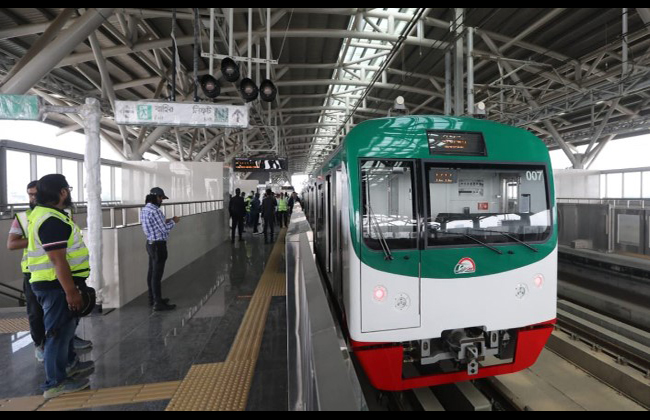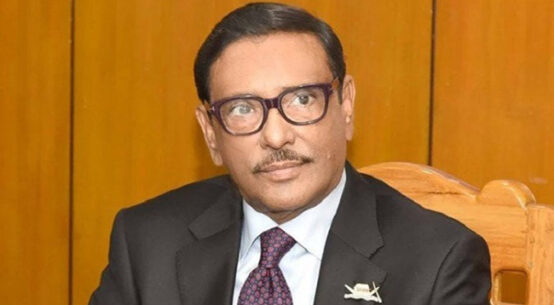
The government is putting the final touches to the Metro Rail inauguration in the last week of the month with the Agargaon to Uttara route to be open to the public in the first phase. Officials said the cars will power through the track at 100kph to traverse 11.73 km stretch from Uttara to Agargaon, punctuated by nine stations, in only 20 mins. It will be reduced to 16-17 minutes when the system operates in full swing. Speaking at a programme on Monday, Dhaka Mass Transit Company Ltd Managing Director MAN Siddique said a proposal was sent to the Prime Minister’s Office asking her to inaugurate the programme at her convenience at the end of the month.
“We are waiting, the date might arrive any day. We will let you know as soon we get it. We’re preparing by keeping the fourth week in mind and are already 80-90 percent done with the opening programme.” State-owned company DMTCL is in charge of making the Japan-financed project a reality. The initial budget of Tk 219.85 billion for the Uttara-Motijheel project was overrun and was later revised to about Tk 334.72 billion after expanding it to Kamalapur.
In 2013, the government struck a loan deal with Japan following feasibility studies and began formulating a design the following year. The physical work started at Diabari Metro Rail Depot in Uttara and continued amid the pandemic with health restrictions.The second phase will open the tracks towards Motijheel from Agargaon in 2023 before it stretches all the way to Kamalapur, according to Siddique.The government has fixed Tk 20 as the minimum fare, which means if passengers take it to go to the next station, they have to pay as much.
After that, per kilometre fare will be Tk 5, which means if passengers ride the metro rail, officially known as Mass Rapid Transit-6, or MRT, from its northernmost point in Uttara to the southernmost point, Kamalapur, the journey would cost them at least Tk 100. DMTCL officials said tickets would be available after announcing the time for the inauguration. Initially, the station counters will issue MRT passes which can be recharged. Tickets for particular destinations can also be purchased from ticketing machines or counters for single trips. Later passengers will be able to recharge MRT passes by using mobile banking services.
Siddique said the passengers would have to get used to remaining on the platform for longer than actually travelling on the metro rail as it was done globally.“The international practice is that the trains don’t go through the full track when it starts carrying passengers, it gradually moves ahead. The trains might run for less time to begin with. But in two or three months the operation will gain full swing,” Siddique said. Starting a trip every four minutes, in the beginning, would create problems for people trying to familiarise themselves with the system. The passengers need a couple of minutes to get on and off the trains while getting used to it, he added.
“We might reduce the stationary time 30 seconds later.” Authorities will keep 10 trains with six cars geared before the inauguration while two more trains will stand by as backup.“The design speed goes up to 110 kph and our operation speed will be 100 kph. You also have to take into account which lines we are running on.”
DMTCL established a Metro Rail Exhibition and Information Centre to introduce people to the process. The Japan International Cooperation Agency and officials of other construction companies demonstrated the ticketing process and rules of conduct of Uttara North Station in Monday’s programme.
Chief Representative of JICA, Bangladesh Ichiguchi Tomohide said the environment-friendly metro rail services would likely bring revolutionary changes to the living standards of the people, saving up their money and time.

